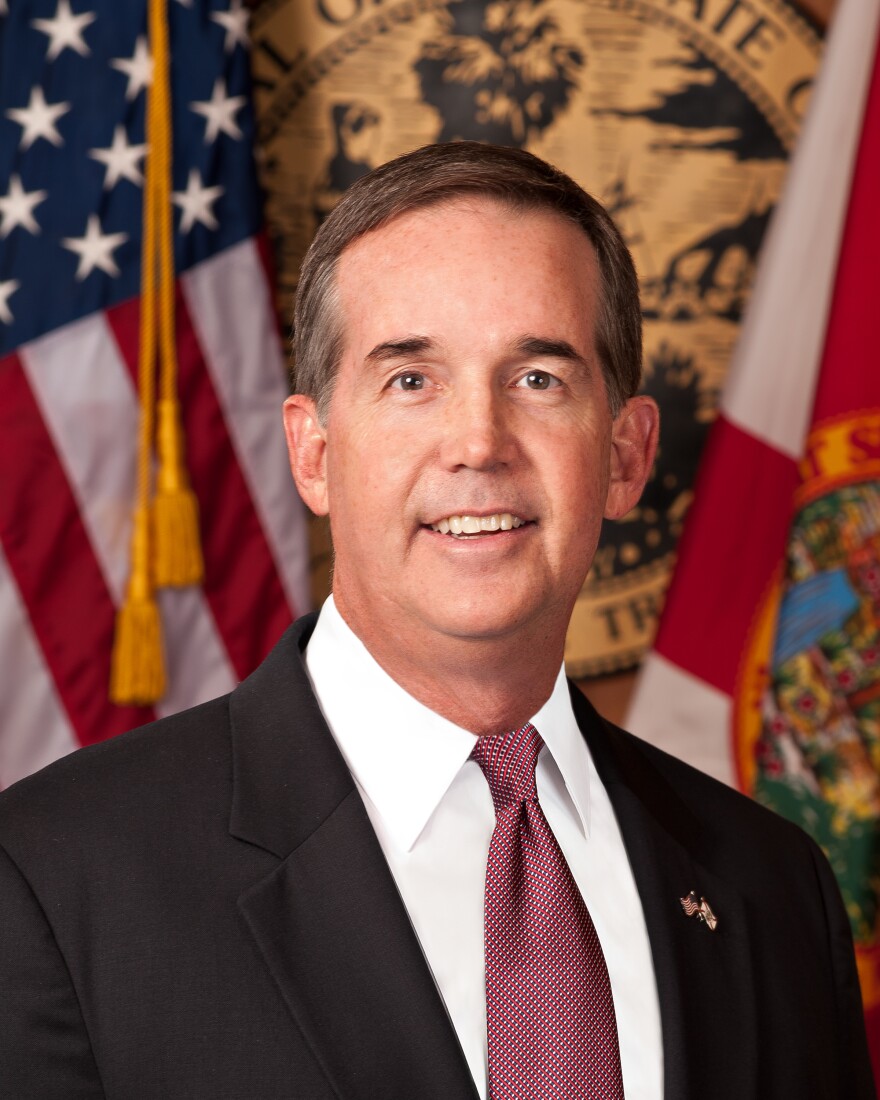As the 2017 state legislative session approaches, lawmakers and Gov. Rick Scott already have been talking about their shopping lists of new ideas about how to spend taxpayers' money. There’s a laundry list of big issues legislators will need to address during their session: the death penalty, concealed carry, gambling. But there is no larger issue than the budget. It’s an $82 billion-plus document that dictates how the state spends money. And this year, as lawmakers make decisions about the next fiscal year beginning in July, it’s expected they will not have the financial wiggle room they’ve enjoyed since the Great Recession ended.
While the Florida economy is doing OK, state revenues are forecast to increase only about $1.2 billion. Yes, it’s a lot of money, but not in the scope of Florida’s annual state spending plan. It represents the smallest annual percentage increase in Florida state government’s revenues since 2012.
Florida Chief Financial Officer Jeff Atwater calls it a “real challenge” for the Legislature.
"All of the general revenue growth we anticipate in the coming budget year will be about $1.2 billion," said Atwater. "But when you look at the growth rate of our K- 12 student population and the growth rate of Medicaid spending, a lot of that revenue is going to be absorbed."
WLRN spoke with CFO Atwater about Florida's finances as Gov. Scott and legislative leaders are jockeying for position over how to spend taxpayers' money.
BUDGET DECISIONS
What is the budget challenge?
Atwater: When you put together what we call the critical needs which are student funding, health care -- particularly Medicaid -- then you add in the high priority needs (such as) infrastructure -- roads, water systems -- it absorbs the entire amount of the new revenue growth. The fiscal challenge for this Legislature is real this year. All the conversations we're having is, 'Don't delay some of the tough decision making.' Many of these legislators have not yet experienced a year where there is actually a growth in expenses faster pacing than the growth in revenues. You have to come to grips with the reality.
Why not dip into reserves?
Atwater: From my standpoint as the CFO of the state of Florida, I would never encourage the Legislature to dip into the reserves. That puts our overall credit rating at risk. When you look out [two and three years], this does not get easier.
HEALTH CARE SPENDING
More than a decade ago, Florida began experimenting with ways to change Medicaid, the health program for low-income residents. The federal government OK'd what’s called LIP, Low Income Pool.
A decade later, and after the federal passage of the Affordable Care Care, LIP funding has tripped up the Florida state budget as the feds have reduced the money going into the program, trying to leverage Florida lawmakers to expand Medicaid as envisioned in the Obamacare law.
For its first decade, the program provided $1 billion to safety net hospitals around the state for providing health care to low income Floridians. In 2014, after the Affordable Care Act had been approved and was being rolled out, the feds increased LIP money flowing into Florida -- more than doubling it to $2 billion. But the additional money came with a warning: It wasn’t going to last. A year later, it was back to $1 billion. This year it's $600 million and it is scheduled to be zero for the next fiscal year beginning in July.
This is the reality that Florida lawmakers have right now as they craft the state’s $80 billion-plus budget, a budget that doesn’t have a lot of wiggle room as it has in the past. Then subtract hundreds of millions of dollars the feds have been sending for health care, which represents more than a third of the Florida budget. And Medicaid alone is about a fifth of the budget.
Atwater: Unless we can prevail upon the federal government, it's done. It's zero. It's done. We have until June 30 and an administration that, I think, is going to be spending many months trying to figure out how to deal with the existing Affordable Care Act. What changes can they make, how do they stair-step those changes? How will any of that allow us to go back to an arrangement that we historically had with the federal government, which is to provide that LIP funding so that we could support our safety net hospitals?

EDUCATION SPENDING
Per pupil spending is expected to be flat.
Atwater: I think it would be a mistake if we only get caught up in the ratio of per student spending. I just don't look at that as the sole source of whether or not people would say Florida's taking seriously our education.
Should the state repeat its effort from last year and use state funds to keep local school property taxes unchanged?
Atwater: I think [it was] the right decision last year. That would be my preference.
It could swallow some of the anticipated revenue growth.
Atwater: Correct.
THE BOTTOM LINE
What is your input to lawmakers making these financial decisions?
Atwater: Don't do anything that could possibly damage our AAA credit rating by [weakening] our balance sheet [such as] moving reverses into current year spending. That credit rating is gold to future costs that we will bear every time we build an overpass or a reservoir for water or a college dormitory. I ask them to make the tough call. Don't put at risk our credit rating.



